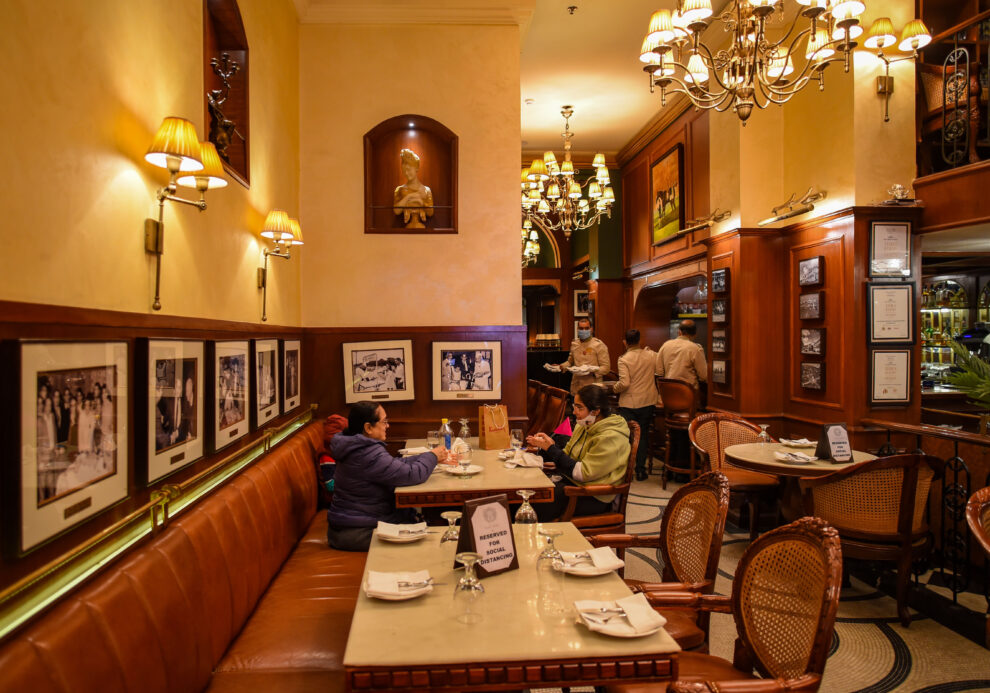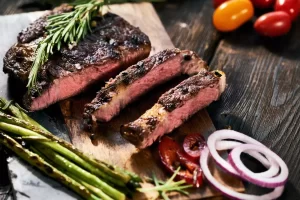Blackbird Labs, a hospitality tech company whose platform helps restaurants stay in touch with guests and incentivize them to dine out more frequently, today announced that it raised $24 million in a Series A round led by Andreessen Horowitz with participation from QED, Union Square Ventures, Shine, Variant and others, as well as restaurant groups Quality Branded, Rustic Canyon Group, Soulva and Brooks Reitz.
Founder and CEO Ben Leventhal says that the proceeds, which bring Blackbird’s total raised to $35 million, will be put toward helping Blackbird scale its operations.
“The restaurant business model is broken,” Leventhal told TechCrunch in an email interview. “It can be really expensive to remain at the top of a sea of competition. Operational costs are also at an all-time high, and restaurants need revenue. There’s only two paths forward: creating new revenue streams or creating regulars who’ll want to come back.”
To Leventhal’s point, a 2022 survey from the National Restaurant Association (NRA) found that 54% of restaurant owners had to reduce the size of their dishes in response to rising food costs. A further 47% of the respondents said that they had to increase menu prices, as well.
And restaurant failure rates aren’t exactly declining. Restaurants have about a 20% success rate, according to the NRA, with about 60% failing within the first year and 80% failing within five years of opening.
Leventhal is perhaps best known for co-founding Eater, the food and drink publication (acquired by Vox in 2013), and Resy, the restaurant reservation service (acquired by American Express — which is also a Blackbird investor — in 2019). He came up with the idea for Blackbird in the early days of the pandemic after noticing that restaurants were finding innovative ways, like rolling out clothing lines and selling pancake mix, to keep customers engaged.
“I was struck by the ingenuity of restaurants, who used their brands and audience to create sales streams that weren’t food,” Leventhal said. “This led me to start thinking about other ways restaurants could combat the serious business challenges of declining margins and eroding direct customer relationships.”
Blackbird is designed to help restaurants both amplify their reach and reward guests, Leventhal says. How? By giving operators a way to not only greet diners by name, but learn their personal preferences, including when they last dined out, their preferred seating and their likes and dislikes.
“With this knowledge, restaurants can serve guests in an unparalleled fashion, making them feel like they’re very important and appreciated regulars, and reward their ongoing patronage with free and appreciated perks,” Leventhal said.
Blackbird does this by having diners touch their phone to a proprietary NFC reader to create a membership or “tap in.” Members can “level up” with each subsequent check-in, Leventhal says, unlocking benefits like off-menu items and a direct message concierge.
Blackbird diners also earn virtual currency each visit, which can be spent on items (e.g. an entree or drink) or tallied toward membership rewards with restaurants via Blackbird’s smartphone app. There’s a web3 component; the currency is technically a cryptocurrency. Blackbird partnered with Privy, a crypto wallet management startup, to provide embedded wallets so users can sign up with a phone number and manage balances alongside their Blackbird membership.
On the back end, Blackbird captures a range of diner data on restaurants’ behalf — including dining history, birthdays and home addresses — so restaurants can target diners with promotions. Restaurants can also use Blackbird to message “top-tier” members with access to a dedicated support line, letting them know when a reservation is made available, for example.
Some customers might not feel comfortable sharing that sort of behavioral data with restaurants. But Leventhal insists that Blackbird is handling data collection in a “transparent” manner, going so far as to give diners control over which specific information (e.g. dining history) restaurants see.
Through Blackbird, restaurants can sell paid memberships to guests, as well. Leventhal says that one restaurateur, a Jewish bistro in Brooklyn, sold founding Blackbird memberships — complete with perks including personalized bomber jackets and a home dinner cooked by a private chef — as a crowdfunding tool before it even opened.
The concept of promoting paid memberships in the restaurant industry — an increasingly common practice — is unavoidably polarizing. For most (including this reporter), dining out is expensive as it is, and having to pay to cut the line to reserve a hot new table or receive better treatment doesn’t exactly feel equitable.
Leventhal, though, assures me that the goal isn’t to foster more ultra-exclusive dining clubs but to give diners at restaurants “of all sizes,” particularly small independent restaurants and restaurant groups, an additional way to support the venues they love.
“With Blackbird’s technology platform, we’ve built a unique, intimate and symbiotic relationship between restaurants and their regulars,” he added.
The question is, can diners be persuaded to use Blackbird in the first place? A 2023 poll by William Blair found that the majority of customers don’t opt into restaurant loyalty programs, and that only 35% consider loyalty programs in deciding which restaurants to visit.
Leventhal believes that they can. And he has some data to back it up: Since launching several months ago, New York City-based Blackbird — which has 20 full-time employees — has signed up around 80 restaurants including chef David Chang’s Momofuku chain, 22 of which are actively using Blackbird.
“There’s no one out there that does exactly what we do,” Leventhal said. “We admire the loyalty programs built by Starbucks, Sweetgreen and more, but we’ve created Blackbird to be an easily accessible loyalty platform, empowering restaurants to have an unparalleled ability to engage customers, reward returning patrons and drive new revenue streams.”
Blackbird’s future plans entail rolling out a referral program that’ll let diners invite friends to become members at a specific restaurant for exclusive dishes. Beyond this, Blackbird intends to experiment with its cryptocurrency, potentially offering membership upgrades, rewards for activity like tap-ins and ways to pay for parts of — or whole — meals.
“Those at the forefront are trying to figure out how to achieve a broader diversity of revenue,” Leventhal said. “Blackbird is designed to be this solution for restaurants — driving loyalty, opening up for interesting revenue plays and incentivizing customers to return again and again.”
Source : Tech Crunch

































